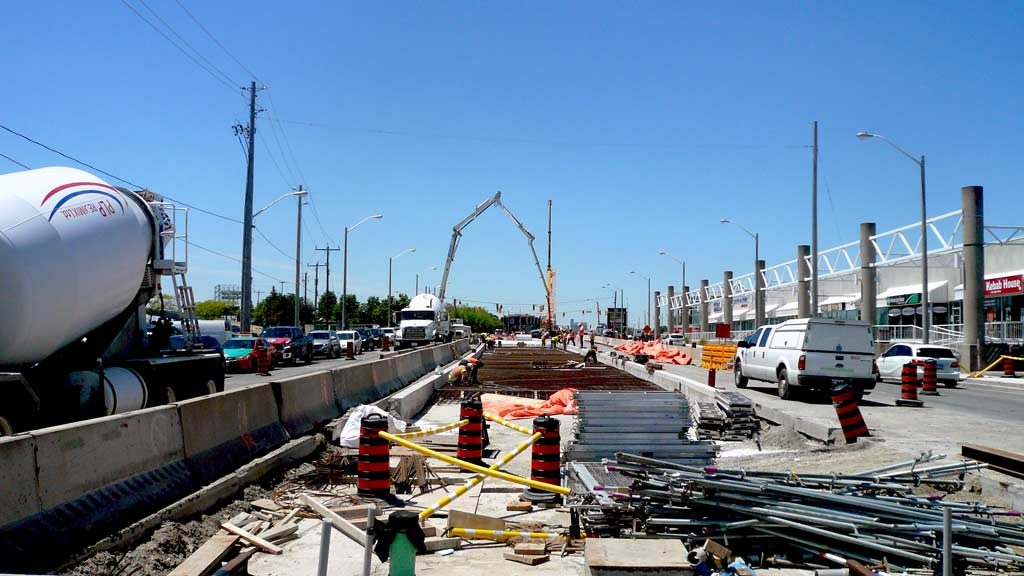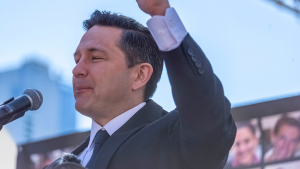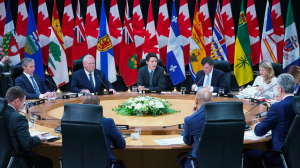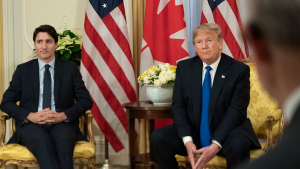Toronto construction stakeholders are praising Mayor John Tory’s plan to increase the City Building Levy to support more transit infrastructure and affordable housing, approved Dec. 17 by city council.
The increase to the levy would add one per cent in 2020 and 2021 to the existing 0.5 per cent planned increment, and an additional 1.5 per cent annually from 2022 to 2025. Tory said in a letter to his fellow councillors the tax hike would raise approximately $6.6 billion to be spent in the targeted areas.
“Ensuring this is dedicated funding, unlike our general property tax revenue, will protect it through this term and beyond so that it is collected and spent for one purpose and one purpose only — building up and investing in our transit and housing infrastructure,” Tory wrote.
“You know I have not made this recommendation lightly but you also know that this funding is absolutely needed.”
The hike in the City Building Levy will become part of the city’s proposed capital budget. The city’s budget process begins in January and the budget is set to go to city council for approval Feb. 19.
While John Mollenhauer, president and CEO of the Toronto Construction Association and Peter J. Smith, executive director of the Heavy Construction Association of Toronto, agreed the funding was vital as a city-building tool, they differed on whether taxpayers should have to bear the burden.
Smith said the city’s taxes are relatively low compared to some jurisdictions and the need for infrastructure is an imperative. It is only fair that the people who live in the city should pay for major projects, he said.
It is a tragedy that we have to increase taxes to fund these kind of things
— John Mollenhauer
Toronto Construction Association
“There is no question the city definitely needs infrastructure repair,” he commented. “Look at the Gardiner Expressway, anyone who drives under it or walks under it has to be embarrassed. We claim we are a world-class city and that is just horrific.”
City-building comes with a cost, Smith said, and besides planning to build for the future, the city has a major infrastructure gap from past neglect it must address.
“Our water treatment plants are over-capacity, we are polluting Lake Ontario,” he said. “Everything needs to be updated.”
Mollenhauer said Toronto’s property taxes are already high and tax increases are regrettable.
“As a Toronto resident, obviously, I am always unhappy when there is any kind of a tax increase on real estate,” he stated. “Taxes are pretty high already in Toronto. It hurts that they propose to finance something that ought to have been financed in other ways.
“Having said that, there is absolutely a sense of urgency that makes it necessary to put money into transit upgrades and affordable housing.”
Tory said the new transit funding would go to new subway cars and streetcars, station improvements and signal upgrades. Hiking the City Building Fund would help raise the $5 billion the city needs as part of its $30-billion transit agreement with the province, he said.
The portion allocated to affordable housing will help the city hit its goal of 40,000 housing units within the next 10 years, Tory added.
The works targeted will directly benefit the heavy construction sector, Smith said.
“All of the deep foundations and shoring are done by my members,” Smith said. “Every station is built underground; the shoring is done by heavy construction members and our members have a lot of involvement on Eglinton and Finch (LRT systems) — two of our largest members are Aecon and Dufferin.”
Mollenhauer took a long view of Tory’s initiative, arguing that the funding decision must be considered in the broader context of a series of municipal policy decisions that have frustrated the sector, and of long-term fiscal mismanagement by all levels.
“Governments from all levels have historically mismanaged finances, certainly in terms of priorities, and infrastructure has for so long been neglected, we are playing catch-up,” he said. “It ought to have been recognized with some urgency decades ago.
“If you look at what Tory is asking for in the context of the current situation, yes it’s urgent, yes it’s necessary, and let’s get on with it, but if you look at the big picture in the longer term, it is a tragedy that we have to increase taxes to fund these kind of things.”
Recent city council measures to regulate congestion and reduce construction noise came with no consultation with the sector, Mollenhauer said, and reflect a continuing disinclination by the City of Toronto to work collaboratively with constructors, he said.
“I sat down with John Tory a number of years ago and said you need to create a high-level advisory committee to interact with industry with constructive conversations about how to make improvements in procurement,” he said.
Due to the city’s attitude, he said, Toronto is now one of the worst cities in Ontario in terms of construction procurement.
“I have known John Tory for decades and I will take the bad with the good,” Mollenhauer said. “He certainly has been good for our city, but the way that the City of Toronto procures construction, they were bad and are becoming worse.”
He had a short response when asked to name a new initiative he would like to see from the city in 2020: “Dialogue.”
Follow Don Wall on Twitter @DonWal_DCN.










Recent Comments
comments for this post are closed